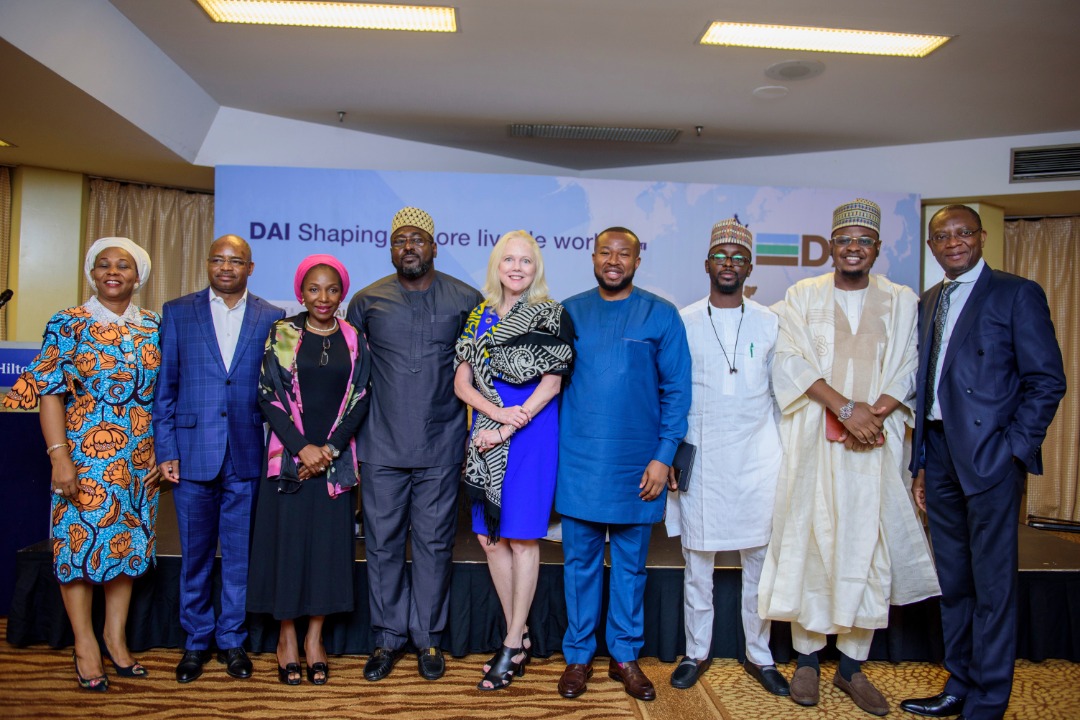Let us know what type of content you'd like to see more of. Fill out our three question survey.
Access for All in a Digital Economy: A Reflection on DAI Development Matters Roundtables in Nigeria
Jun 6, 2019
The technology revolution in Nigeria is remarkable compared to other countries in Africa (the country completely skipped the landline stage of development!). As one of the top destinations for investment in Africa, Nigeria is home to booming tech startups that provide a collaborative environment for entrepreneurs across sectors. Powered by the Nigerian government’s commitment to digital access, the digital ecosystem in Nigeria is likely to evolve further. Within this context, DAI’s office in Nigeria recently hosted two roundtables—one in Lagos and one in Abuja, both featuring insights from DAI’s Vice President of Technical Services, Brigit Helms, who recently published “Access for All: Building Inclusive Economic Systems.”
The Lagos discussion centered around a lack of social inclusivity of digital access in Nigeria and a need for more government action to support the needs of the small business in the technology sector. Stories of success were also shared about tech hubs such as the Co-Creation Hub in Yaba and Stonebricks in Abuja.
Panelists at the Abuja roundtable included Isa Ali Ibrahim Pantami, the Director General and CEO of the National Information Technology Development Agency, and Ladi Bala Keffi, Deputy Director and Head of the Macroeconomic Policy Division of the Central Bank Nigeria. Their conversation focused on a call for greater IT development, regulation and policy, data ownership, cyber security, privacy, digital job creation, financial access, and inclusion.

Abuja roundtable participants.
Key Takeaways
There were several key takeaways from the discussions, and while not revolutionary findings for digital development practitioners, it’s important to continue highlighting these issues and their persistence especially in countries like Nigeria, where the technological advancement is beyond most countries in the region.
-
Gender inequality in Nigeria is a significant barrier to digital access for women. Women—especially those who have lower incomes, less education, and live in rural areas—are tacitly discouraged from having personal bank accounts, land ownership, and educational training, limiting them from benefiting from digital services such as digital banking and e-commerce. However, 60 percent of Nigeria’s GDP is represented by the unpaid work that women do. For example, the domestic work that many women are socially and culturally responsible for constitutes a significant portion of household budgets. This issue calls for a widespread shift towards gender inclusion, especially in digital access.
-
The progress of mobile access is surpassing that of digital access, although this plateaus among economically and financially excluded populations. Expanding mobile access is an opportunity to reach these populations not just to give access for access sake, but rather to enable access to the tools and services that come with owning a mobile phone, including the internet. The government representatives on the panel unanimously agreed that there is a clear need for policies that incentivize increasing broadband penetration, especially in rural communities.
-
The Central Bank of Nigeria recently revised the National Financial Inclusion Strategy to permit telecommunication companies to lead the implementation mobile money in the country. Prior to this policy change, only banks could administer mobile money, discounting people without accounts. Now, anyone with a mobile phone can access mobile money.
-
Informal ICT training and skills development for young people is essential to capacitate the next generation workforce in Nigeria. Currently, the demand for ICT products and services far outweighs the supply of labor in the country with the necessary skillsets. This means that companies are looking outside the country to acquire the tech skills they need to support their business. As Hanson Johnson highlighted in a post earlier this year, there are initiatives supporting local tech talent to grow. Given the high demand for these skillsets, there is an opportunity for young people interested in ICT across Nigeria to fill the labor market gap.
Looking Forward
The takeaways above are just some of the many barriers to and opportunities for digital access that are apparent in Nigeria. The roundtables demonstrate that the Nigerian government and the private sector are committed to improving digital access, as the technology sector continues to grow in the country. As policies are enacted, the Nigerian government’s commitment will ideally translate into action that positively impacts the communities disproportionately affected by limited digital access. To date, Nigeria has made great strides in becoming a tech leader in the region. Undoubtedly, more targeted efforts for inclusion will only help this effort, engaging millions more in the fast-paced global economy. Our hope is that these roundtables are just the beginning of the conversation.